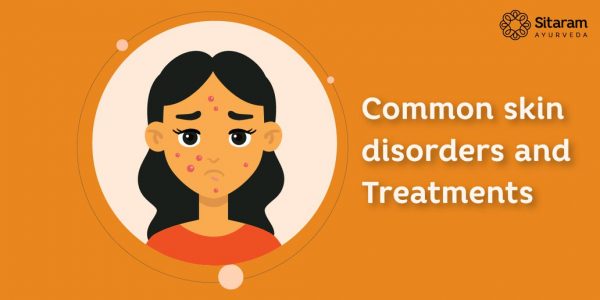

Effective treatments for chronic skin disorders are essential for managing discomfort and improving overall well-being. Chronic skin conditions can significantly impact daily life, causing physical and emotional distress. This comprehensive guide explores various approaches to treatment, highlighting both medical and lifestyle interventions for managing these conditions effectively. We will delve into different types of chronic skin disorders, examine their causes, and discuss the most promising treatment strategies available. The structure of this article includes sections on specific treatments, lifestyle considerations, and potential complications. We will also address frequently asked questions about effective treatment options.
Understanding Chronic Skin Disorders
Chronic skin disorders encompass a wide range of conditions that persist for an extended period. These conditions often cause visible changes in the skin’s appearance and texture, leading to discomfort, itching, pain, and even social stigma. Various factors, including genetics, environmental triggers, and underlying medical conditions, can contribute to the development and progression of these disorders. Skin conditions like eczema, psoriasis, and acne are examples of chronic skin disorders. Understanding the specific type of skin disorder is crucial for effective treatment.
Medical Interventions
Topical Treatments
Related Post : Common Skin Conditions That Often Go Misdiagnosed
Topical treatments, applied directly to the affected skin areas, represent a frequently used approach for managing chronic skin disorders. These treatments often contain corticosteroids, retinoids, or other anti-inflammatory agents. A dermatologist can recommend appropriate topical creams, ointments, or gels based on the type of skin disorder and severity. For example, hydrocortisone creams are commonly used to reduce inflammation in eczema, while retinoids might be used to treat acne or psoriasis.
Oral Medications
In cases where topical treatments are insufficient, oral medications may be prescribed. These medications can target underlying inflammation or immune system responses. For instance, certain oral medications can help control the inflammatory response associated with psoriasis and reduce the frequency and severity of flare-ups. The decision to prescribe oral medications is made in consultation with a healthcare professional and based on a thorough assessment of the individual’s condition.
Lifestyle Modifications
Diet and Nutrition
Maintaining a healthy diet plays a significant role in managing chronic skin disorders. Certain foods may exacerbate inflammation, while others can promote skin health. For example, a diet rich in antioxidants and anti-inflammatory foods, such as fruits, vegetables, and omega-3 fatty acids, might help reduce inflammation and improve skin health in individuals with chronic conditions like eczema or psoriasis. Consult a registered dietitian for personalized dietary recommendations.
Stress Management
Stress is often implicated in the worsening of chronic skin disorders. Stress triggers the release of hormones that can worsen inflammation and exacerbate symptoms. Incorporating stress-reduction techniques, such as meditation, yoga, or deep breathing exercises, can help manage stress levels and, in turn, improve skin health.
Complementary and Alternative Treatments
Phototherapy
Phototherapy uses light to treat chronic skin conditions. For instance, ultraviolet (UV) light therapy is often employed to manage psoriasis. This therapy works by reducing inflammation and promoting skin cell turnover. The dosage and duration of phototherapy treatments are carefully monitored by healthcare professionals to prevent potential side effects.
Herbal Remedies
Some individuals explore herbal remedies for managing chronic skin conditions. However, it’s crucial to consult with a healthcare professional before using herbal remedies, as some may interact with medications or exacerbate existing conditions.
Seeking Professional Guidance
Consulting a Dermatologist
Consulting a dermatologist is essential for accurate diagnosis and tailored treatment plans for chronic skin disorders. Dermatologists are medical specialists trained to diagnose and manage various skin conditions. They can provide personalized advice based on individual needs and skin types. Early diagnosis and intervention can improve outcomes and prevent complications.
Importance of Regular Checkups
Regular checkups are vital for monitoring the progression of chronic skin disorders and adjusting treatment plans as needed. Regular communication with your healthcare provider allows for timely adjustments to the treatment plan and minimizes complications.
Additional Considerations
Specific Treatment Protocols
Monitoring Treatment Efficacy
Case Studies and Evidence-Based Research
In conclusion, effective treatments for chronic skin disorders require a comprehensive approach that combines medical interventions, lifestyle modifications, and emotional support. Addressing the underlying causes of the condition, alongside managing symptoms, is crucial for long-term well-being. Consider consulting a dermatologist for a personalized treatment plan tailored to your specific needs and skin type. By understanding the various treatments available and proactively managing your condition, you can significantly improve your quality of life and achieve a healthier skin.